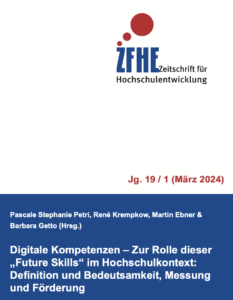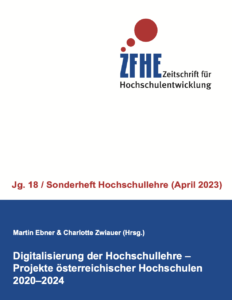We are thrilled to announce that our article about „An Introduction to Open Educational Resources and Their Implementation in Higher Education Worldwide“ was published in the Weizenbaum Journal of the Digital Society.
Abstract:
The digitization of (higher) education has exposed copyright infringement issues, as the unauthorized use of copyrighted materials has become more visible. This article explores the importance of open educational resources (OER) in higher education, focusing on their development, how they are understood, and the opportunities they offer. OER are defined as learning materials released under open licenses, allowing no-cost access, reuse, adaptation, and redistribution. The article discusses the OER movement, its milestones, and its integration into educational practice. It also presents arguments for OER: they enable free access to education, improve teaching practice, diminish legal issues, and foster open science. In addition, it highlights criticisms, including resistance from traditional publishers and concerns about marketing influence. The article concludes by examining current OER implementation in higher education and its promise of innovation. While OER are increasingly adopted, proprietary resources still dominate. The article emphasizes the need for educators to use open licenses meaningfully and innovatively and presents research on OER acceptance and usage. The monitoring of OER development in higher education is essential, but approaches may vary across countries.
[full article @ journal’s homepage]
[full article @ ResearchGate]
Reference: Atenas, J., Ebner, M., Ehlers, U.-D., Nascimbeni, F., & Schön, S. (2024). An Introduction to Open Educational Resources and Their Implementation in Higher Education Worldwide. Weizenbaum Journal of the Digital Society, 4(4). https://doi.org/10.34669/wi.wjds/4.4.3



